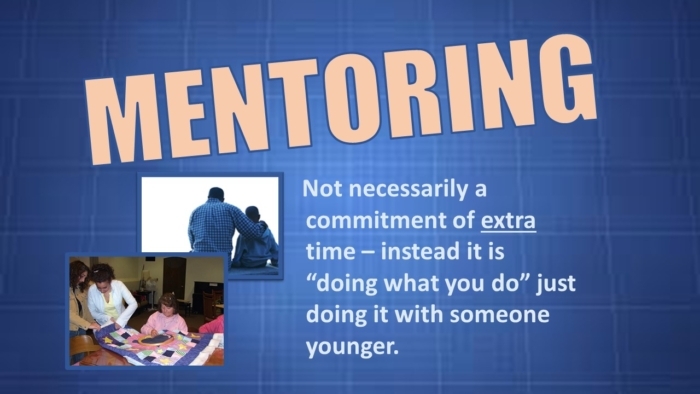Trends Youth Workers Will Face This Year

Remember the familiar narrative in Acts 17 when the Apostle Paul used his personal observations of the city of Athens as a springboard for an opportunity to share the Gospel with the philosophers that were gathered at the Areopagus?
Youth workers – let’s apply this same action step as we make our final preparations for our youth groups this Fall. Let’s use our own observations to identify some of the cultural trends that are facing our kids, and then use those trends as opportunities to reach out to them and the households they are from.
The big difference here of course, is that Paul was a visitor in Athens – and we live in the communities in which we minister. But the same principles apply.
What’s going on in your community? Do you read the local newspaper, or watch the local news to get a glimpse of what your community leaders are saying? Why not schedule an appointment with the principal or superintendent of schools where the kids from your church attend? Have you done a demographic study of the population trends in your area?
(By the way, you can get a lot of that information free from sources like the US Census Bureau. For more information on how you can do that, you are invited to participate in my FREE Zoom webinar which will be held on Thursday, September 23 at 1 PM Eastern Time.)
What are the trends and the needs of your community? What are you seeing? What are you observing that may provide you with greater opportunities to share the Gospel or to minister to kids and the households they are from?
In preparation for my upcoming webinar, and in preparation for our church’s ministries this Fall, I have identified the following cultural trends that I want to share with you here.
(I am especially interested in knowing if you are seeing the same things. If so, I’d love to hear about it. Or if you are seeing other cultural trends that are facing today’s kids, please let me know about those things too. You can send me your thoughts at: [email protected].)
Some Cultural Trends Youth Workers Will Face This Year –
- You will have kids in your group from a growing number of hurting households.
The demographic statistics in your community will probably prove this to be true. Members of Generation Z are from a rapidly increasing number of non-traditional, dysfunctional, and hurting households. (You can read more about the specifics in Generation Z: A Century in the Making, by Corey Seemiller and Meghan Grace, and Households of Faith: The Rituals and Relationship that Turn a Home into a Sacred Space, published by the Barna Group.) It is very likely that several kids in your group this Fall will be products of hurting households.
- You will have to minister to kids who are from homes where church and religion are not that important.
Here’s another trend that you will most likely face this Fall: church and church programs are not a top priority in the lives and schedules of many of the families who attend your church. Some researchers have recently reported that many families that claim to be followers of Christ only attend weekend church programs approximately once per month.
I’ve met with several youth pastors recently who have shared with me that it is a struggle for them to get their teenagers to regularly attend youth group. Other things, like sports and work, are more important. It is becoming more likely that youth workers will have to find other creative means to connect with kids instead of thinking that today’s teenagers will faithfully attend church and youth group.
- Several of the teens in your group will feel stressed, fearful, and uncertain.
You have undoubtedly read about this in recent news reports – and if you have personal relationships with many kids, you will know that this trend is true. Perhaps it is a result of the Covid crisis, or maybe it was happening anyway, but many of today’s youngest generations feel the stress of anxiety, fear, and uncertainty. Plus, the parents of your kids are facing these emotions too. This is a serious situation. The “mental health” of your young people is something very real. I’m thankful that we have the “living and powerful” Word of God that provides real answers for real-life situations!
- Some of the kids in your group are facing difficult “identify” issues.
Here is another issue that youth workers will probably face this year. Today’s kids are being bombarded with “identity” issues in the media, in school, and from a variety of other sources. Most likely you will have kids in your group who are struggling with distorted or unrealistic perceptions of themselves. Again, it’s important to realize that our best resource to help kids with this is the truth of God’s Word, and the demonstration of the unconditional love of Christ.
- Most of your students will need direction in finding their purpose in life.
Kids probably have always struggled with this one. I know this was something that I had to work through way back when I was a teenager – but this is even more pronounced now. Your students will be thinking about the big “purpose” questions of life. “Why am I here?” “What am I supposed to accomplish?” “What should I do with my life?” You should teach your group about knowing and doing God’s Will, but you should also have personal conversations with each teenager to help them identify what God wants them to do with their life.
Again, youth workers – I’m wondering what cultural trends you are seeing this year. Please let me know. You can send me a personal note at: [email protected].
I will post an article soon that outlines some of the action steps I suggest that may help you deal with these cultural trends. Blessings!




